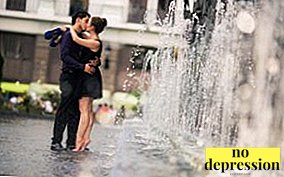Among the popular professions, the coach occupies one of the leading positions. Why it happens? What is the peculiarity of this specialty? Who is a coach? Is it easy to become? What knowledge and skills do you need to have? What is different coach and coach? Is it possible to master this profession independently, or is it necessary to undergo serious training? Where and how is coaching going? Are the services provided by coaches overestimated? Is it possible to do without them? The answers to these questions are contained in the publication.
Who is a coach?
A coach is a person who, through continuous cooperation, helps a client find answers within himself. His main role is to develop the client’s understanding of how he can achieve his goals. A coach helps to achieve professional or personal goals. In the classical sense, the representative of this profession should not influence the decision-making by the client. His task is to organize the process so that the person himself has achieved the desired goal.
Unlike a mentor, a coach is engaged not in the general development of a person, but in the formation of his specified skills. For example, building relationships with the opposite sex, moving up the career ladder or managing personnel. The mentor, on the other hand, gives the ward all the baggage of his life experience and knowledge, according to the western tradition, being called a mentor.
This does not mean that a coach cannot, at some moments, take on the role of a mentor when such a task is set, for example, during the training of new coaches.
What makes a coach different from a coach?
Another closely related concept to the word “coach” can be called a trainer. In many ways, the blurring of boundaries between these two professions is due to the emergence of self-taught coaches, who have retrained from coaches to a new direction for themselves, without passing specialized training and applying their usual methods.
What makes a coach different from a coach? The degree and methods of influence on the audience. A coach must develop certain psychological attitudes of his pupils, which will allow them to make the right decisions almost intuitively. However, he does not teach, does not instruct, does not give answers. The coach also performs a more technical role.
For example, he can improve the skills of employees regarding the accounting program, teach the rational use of their time, suggest more effective sales techniques, etc. He should "chew and put in his mouth," and the coach only stimulates the "chewing" process.
The coach does not give answersHis main task is to develop the ability of a person to achieve his goals himself, to find the necessary ways and solutions.
Many professional areas require certain inclinations of personality, such as leadership qualities. Then, the lines between these specialties are erased and the work is performed by the coach in one person. It helps to better master the profession and develop an understanding of the correct behavior strategy for the client. There is also a coach-consultant who, on a consulting basis, contributes to starting a business or solving other issues.
What knowledge and skills should a coach have?
Unlike a coach, a coach must be strong in psychology, since his work is the mind and the subconscious. What is a coach? This is a psychologist, a sage, a professional in the chosen direction. A person who combines life experience with fundamental knowledge.
Therefore, many people work as trainers and consultants, but only few are decided to become coaches. Too much responsibility and the cost of mistakes. Therefore, there is a great risk of falling into the hands of a charlatan. Looking for a coach for yourself or your company, it is advisable to pay attention to this no less than when choosing a dentist or lawyer.
How to become a coach?
Since the specialty of a coach is not regulated by academic science and bureaucracy, it is impossible to find a special institution of higher education in this profile. All academies and other schools are licensed by the same academies and schools. That is why the risk of quackery occurs even at the training stage. How to choose a teacher or training center? In specific cases, in the opinion of students and clients, by their number, status. It is also important to always listen to your inner voice. After all, intuition fails less often for show diplomas or awards.
One of the most famous training centers - International Coaching Federation (ICF), which unites more than 24,000 professional coaches from 50 countries of the world. This is the largest non-profit association of specialists of this profile.
According to the ideology of ICFCoaches must perform the following role:
- To stimulate independent development of the client;
- Consider it reliable and responsible;
- Determine the goals that the client wants to achieve;
- To help him develop the necessary strategy on his own.
According to these principles, the process is built preparing future coaches. Rejecting the role of a coach for a coach is also not true. After all, no one will go to a self-taught doctor for treatment and will not give his child to an amator teacher. Accordingly, in this specialty also need a teacher. In any case, it will always be possible to shift the responsibility for the unsuccessful approach to your client.
According to international certification, there are such professional levels of coaching:
- ACC (Associate Certified Coach) - issued after 60 hours of training and at least 100 hours of practice;
- PCC (Professional Certified Coach) - requires 125 hours of study and more than 500 hours of practice;
- MCC (Certified master coach) - the degree of dedication, which can be obtained after 200 training hours and 2500 hours of practical activity.
But many coaching amateurs act differently. They start with self-education and practice, and only then, at a certain moment, they are looking for a mentor, or they simply switch to some other job. Lacking sufficient knowledge and skills in coaching, they make a number of mistakes, at best, simply not benefiting. They impose their opinions on clients, try to solve problems that arise instead. In general, they do not behave professionally and incorrectly, thereby undermining the coaching authority.
Coach job prospects
The best motivation to start studying and practicing are the prospects for this direction. First of all, the market for coaching services is still developing, so the competition is still low. Secondly, this profession allows you to constantly develop yourself. Thirdly, the work of coaches is highly valued by their clients (in material terms). Fourth, this specialty allows you to work on a flexible schedule. Fifth, coaches can find themselves anywhere in the world, constantly traveling. Sixth, it is one of the fashion professions, along with businessmen and actors. Seventh, the income of the coach is not limited to anything other than his personal self-esteem. Working as a coach, you can set the rules for dialogue with the client. The main thing is just to meet his expectations, otherwise you can spoil your reputation and immediately lose a couple of zeros in the price list.
Coach is a fashionable and popular specialty.which remains a matter of units. Many try their hand, but far from all succeed. Even answering the question of who the coach is, there is still no guarantee that we can find a real pro. The main thing is to rely on the tips of your inner voice and stick to his advice. Sometimes our intuition can become the best coach, it is advisable only to learn how to hear it. If the inner voice is silent, then it is better to contact a specialist.



